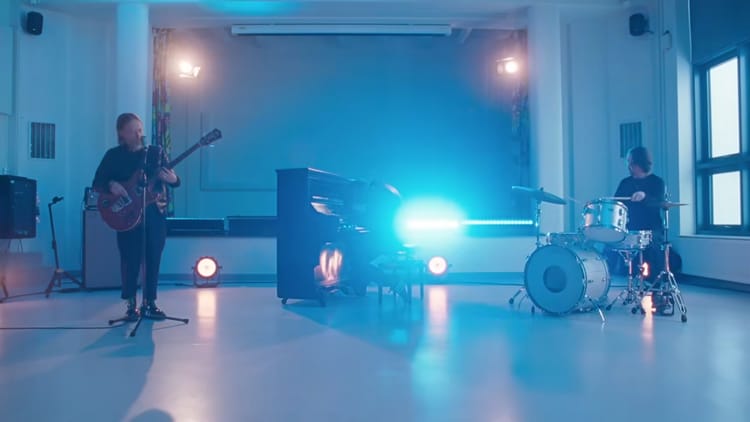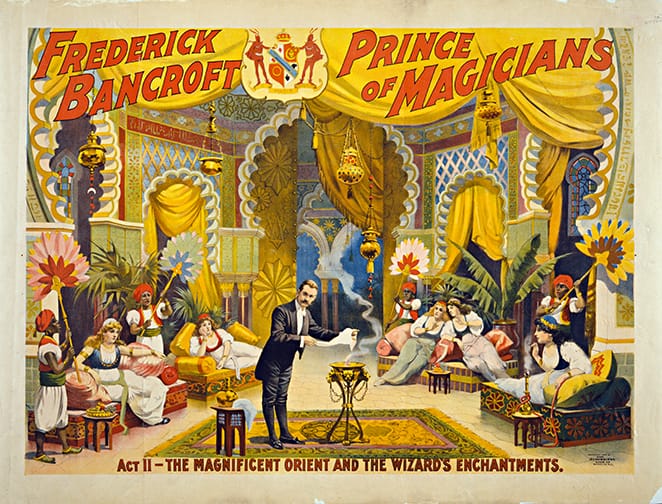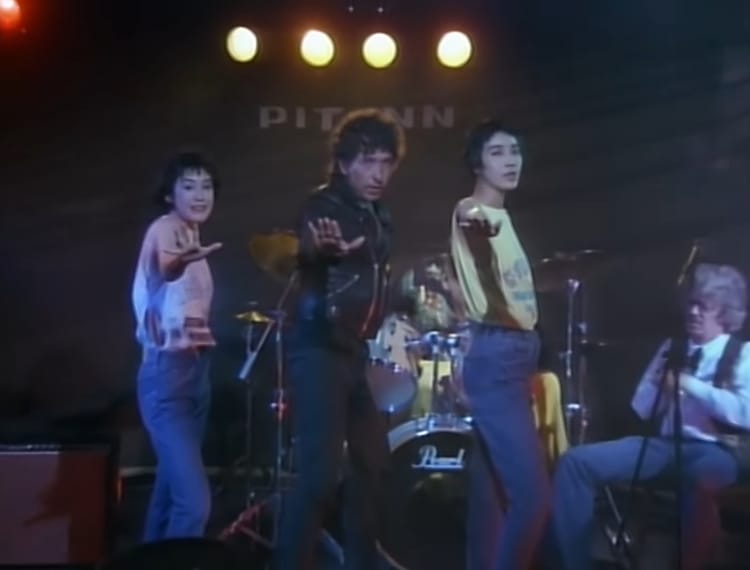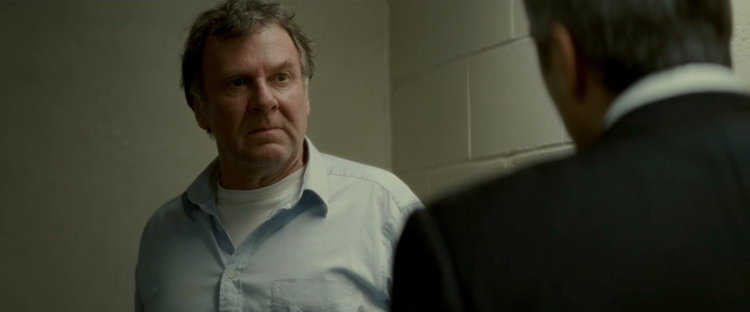This Is My Fascination, Vol. 3 - Part Two
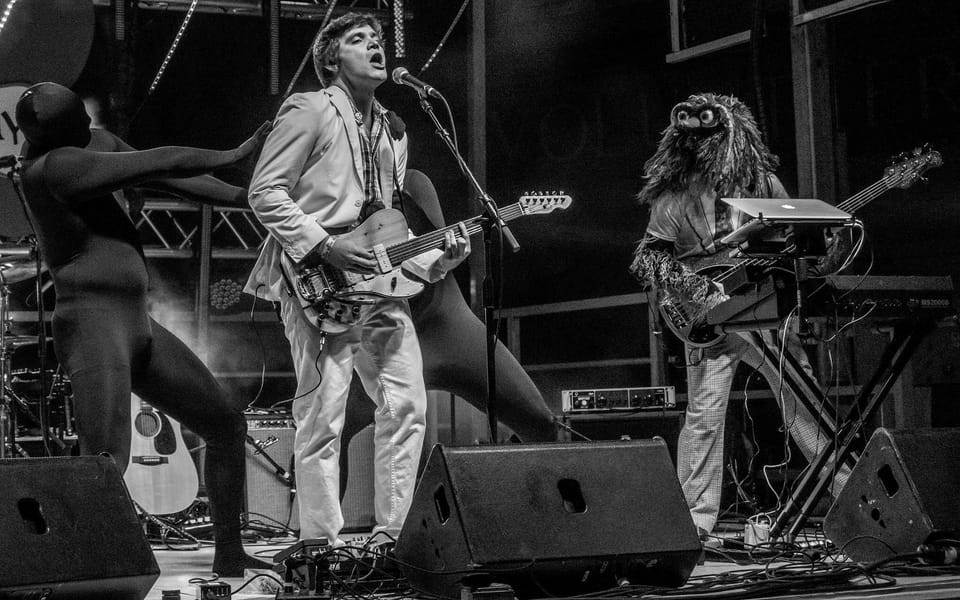
Yesterday’s newsletter featured a conversation with the great Frank Falisi, in which we dove into the work of multi-talented musician Nick Lutsko. Frank and I had that talk last week, and by the end of it, I was eager to see whether we could get in touch with Nick himself, and continue mapping the topography of what Frank called “the Nick Lutsko project.” Nick was kind enough to offer Frank and me 40 minutes of his time yesterday morning, and we followed up on the ideas covered in our first talk, as well as touching on everything from the pitfalls of comedy songwriting to maddening algorithms to the antichrist. By the end, I was even more enamored of Nick’s work, and newly impressed by the care he puts into his art, as well as his eagerness to laud his collaborators. For my money, that’s one of the most meaningful things an artist can do. And I do consider Nick Lutsko a pretty meaningful artist.
This conversation has been lightly edited for clarity.
FRANK: How are you? How's the day? What's going on?
It's good. I went to bed too late last night. Didn't get very good sleep. [hoisting coffee] But that's what this is for. I'm doing all right. Working on writing some new music.
ETHAN: A follow up to Swords, right? Was that what you posted?1
Yeah, the last few years I've been going down the comedy rabbit hole. And I love doing both. But this stuff has kept getting put on the back burner. And it was the first time in a while that I've had a lull in my schedule, didn't have shows booked or events planned or anything like that. So I’ve been really putting my nose to the grindstone, just trying to churn out as many songs as I can before I really figure out what exactly I'm going to do with them, whether it's going to be a series of singles, or an album, or what. I'm not really sure yet. I'm just focusing on writing for the time being.
FRANK: It seems like the comedy can really drag you to a certain place, right? I think you said “content creation” in the tweet about following up on Swords.2 I'm curious how you've been juggling wanting to do more of a follow up to Swords, and also seizing on the attention of those comedy singles, which I think there is in great quantity.
It's really tricky in that the whole comedy thing was really kind of an accident. I've been doing music my whole life. I got my first guitar when I was like nine years old, and started writing songs, started my first band in middle school, put out a couple of albums in high school. So I've been doing this for forever. And not to get into my long-winded origin story, but I started working for this company Super Deluxe, just because I was a fan of Tim Heidecker, and Vic Berger, and they were doing stuff for Super Deluxe. And I sent them an unsolicited theme song for a thing they were working on, and that was my foot in the door. I started working for them making comedy songs, and there really was no deliberate, like, You know what, I love comedy, I want to go pursue comedy. It was really more, I have no idea how to make a living doing this thing that I love. And here's an opportunity for me to do that. It was a good incubation phase, unbeknownst at the time, for a career in comedy, to form my voice under the radar without my face directly attached to that for a few years. And then when that ended—Super Deluxe shut down—it’s not like I can go apply and do this somewhere else. It was such a niche lane that I carved out for myself.
And just something during the pandemic—it was the first time where I guess I felt comfortable releasing comedy music with my face attached to it. I don't really know what changed. Because, up until that point, I had major impostor syndrome, and this feeling of, This isn't really what I set out to do, and I don't really deserve a seat at this table. And things were just so weird. It was such a weird time. Everyone was only online because we were all isolated and on lockdown. I think the first one I did was “Chrissy Teigen, Please” which was about Chrissy Teigen unfollowing me.
And it was, like, instant dopamine rush. Especially after having done Swords, and labored over it for years, and then you release it, and then it's out there, and you don't really know, Is anyone listening? How do they feel about it? And then releasing this comedy thing that I made in a couple of hours, and having it do really well, you have instant gratification. You get to know exactly how people are feeling about it, and then celebrities are retweeting it, and it just felt like a green light moment—Maybe I should be putting some energy into this. And I kept doing it. That was three years ago now, and what I'm realizing three years on is, if you're not putting stuff out consistently, there's so much out there, people just move on to whatever is in front of their face. Everyone is battling for the same attention of these people. And I've had to learn to just be okay with people forgetting about what I'm doing for a while, because it does feel like trying to keep your head above water, trying to keep your subscribers up, keep your Patreon numbers up, keep your Spotify numbers up, you’ve got to constantly be turning that stuff out. And I think at a certain point, if you're constantly chasing that, it doesn't become about what you're creating. The work suffers as a result. And that's why I wanted to unplug and put my head down and just focus on creating for a while.
I kind of wondered, when I started doing this, if I’d have this feeling of the scales being lifted from my eyes. Like, Oh my god, I've been neglecting this all this time. I was wondering if I would have this feeling of re-falling in love with doing this sort of work, and any regrets over spending so much time doing the other stuff. And, truthfully, there hasn't been that. It's really shown me how much I love the comedy stuff. And I really hope I can get to a place where I can do a better balance, because I do equally enjoy both sides of expression, whether it's sincere, heartfelt, or cynical, or heartbreaking, whatever. Or if it's absurd and comedic and ridiculous. I just feel like I connect with all those things. And I'd love to continue doing both. There's so much I tried to do, it's hard not to spread myself thin a little bit.
FRANK: It helps to be clear about your formal intentions, right? Like, OK, this is the comedy stuff, and this is the non-comedy stuff. But at the same time, there's so much crossover. I feel like you feel a frustration in terms of, it's either A or B, but it's really not, it's some combination of both. There's room for it to be both.
I've slowly been getting to this point where I'm realizing that there can be overlap, and I think I'll be really comfortable in a place like that. What was tricky is, I released the “songs on the computer” story, which was a specific character in a very specific world. And that guy was not me. It was confusing, obviously, because it’s my face, and my name. It became really tricky trying to determine, When am I that guy, and when am I this guy? It's funny, because even the guy who wrote Swords, that's a different guy from me. There's those two guys, and they're both different parts of me, and when I finished Songs On the Computer, and I wanted to keep doing comedy stuff, I had a hard time figuring, OK, what's a way to keep doing this where I'm not just doing the same sweaty-faced dude over and over again? And I think the most realized version of that has been some of the Halloween stuff that I've done, specifically the “Crickets” video that I released, and “Pumpkin Man,” which are very narrative-driven.
They're comedic, but they're also pretty dark, and the videos are very cinematic. I feel like there's more overlap in those videos with some of the the music videos that I did for “Sideshow,” and “Spineless,” some of the other songs off of Swords.
So yeah, I don't really feel like there's a lot of comedy happening on this collection of songs that I'm working on right now. But I feel like the place where the two really meet in an explosive way are the live shows. And it was a tricky thing, in that we found a very dedicated fan base online during the pandemic, and people that were super excited to come see us live. But all those people were following me on Twitter, and on YouTube. And meanwhile, if you go on my Spotify, all the top songs on there aren't the comedy songs. It's all Swords. And so it's this recognition of, OK, a big portion of the audience is gonna be coming wanting one thing, then there's another portion that will be maybe not even aware of that thing, that are coming because they like the songs they heard on Spotify. And it was trying to craft a show that doesn't have either side come to the show being like, What is this? It's kind of a comedy show, but it's mostly a rock show. And it was very much a tightrope act, crafting that set, when we first started booking shows. But that is the place where I realized, for the first time, Oh, these two parts of what I'm doing can coexist in a really cool way.
When we did our first shows in Chicago, in 2022, we were really worried about how the crowd would receive the non-comedy stuff. And I think “Straitjacket” might have been one of the first songs we played off Swords, and the whole room was singing along. And I really wasn't anticipating that. It’s very cool. The energy never dropped, it seemed like the people that were there were just as into the non-comedy stuff as they were the comedy. And afterwards, I always try to hang out near the merch booth and say hello and meet people after the show. And I was surprised at how many people said, I loved your Twitter stuff, and that got me through the pandemic, but I love your other stuff even more. It seemed like the comedy stuff was a gateway drug to the other stuff, which was really cool. You can't ever plan that, but it worked out in a very cool way.
ETHAN: I would not discount the fact that the songs off Swords are often very funny, and the comedy songs rock. So it does meet in the middle nicely that way.
I do think that's inherently a part of it. The reason I was able to fall into comedy on accident is because I do love comedy. I was always the class clown in high school. I've always enjoyed making people laugh. That's the other thing about the comedy songs, I need to either have a very catchy melody, really interesting production—not that the comedy stuff isn't just as important, but I don't take off with it until I feel like I have a really catchy or interesting vehicle, musically, to do something. Whereas I feel like a lot of musical comedy in the past, the music just has to be good enough to get the joke across. And I'm valuing the music. Musically, the stakes are maybe more important than the joke is.
ETHAN: Is the character from Saturday Nick Lutsko3 the character from Songs On the Computer, or is that a third character?
That's a great question, one that I really don't have a coherent answer for.
ETHAN: Are the live-streams happening from Grandma's house?4
This is me going by the seat of my pants here, but say there's me, and then there's Grandma's-basement me, it's almost like a third middle-ground character. That was the guy that made the songs on the computer. Obviously he's not red faced and sweaty, and he's got his own home, and he's got a studio. He’s more competent than that guy. But he definitely still has his blind spots.
I remember being so confused when On Cinema5 first came out, watching episodes and being like, I'm confused, is this Tim from Tim and Eric? Or am I supposed to forget that Tim and Eric exists in this world? And now, of course, I get it. All of a sudden, it just clicks. But I do remember spending that whole first season very confused, and wondering, How does this play into the bigger Tim and Eric world? And that's just the confusion of not naming your characters.
It's funny, you're the first person to have asked me that. It really is kind of like the personification of trying to blend these two worlds together. We do the non-comedy songs on those streams. And that really was an attempt to bridge those two audiences, and try to grow the YouTube, because I upload all my old Super Deluxe videos to my YouTube. And so I have a lot of subscribers that I think probably aren't as familiar with what I actually do outside of the Super Deluxe videos. And I wanted to do the SNL streams as a way to showcase all the different things—there's the Swords stuff, and the Songs On the Computer stuff, and new stuff, and more sketch-type work. I love working in that format. We did three episodes this year, and I feel like each one, we raised the bar a little bit. I've written episode four, most of it, and I feel like that has taken it up another level. But I don't know how YouTube works—I have 100,000 subscribers, and then it gets like 1,000 views. It's like, OK, I don't know if this is worth the amount of work that goes into this thing.
I've been so incredibly lucky and blessed in that I have so many insanely talented collaborators, like Brielle Garcia, who helped on the “Crickets” video, she helped on the “Cocomelon” video, she's done a ton of work. And Dan Cupps has worked on a lot of the last two episodes of SNL, and he did the rendering of Pumpkin Man in the “Pumpkin Man” video. And then we have this new guy, Noah Campagna, who did some amazing work in the last episode. And all these guys are incredible artists. No one's getting rich off this, and then the little bit that I am able to disperse to make this thing happen—it's hard to incentivize keeping on doing it, even though we're all loving it. I think there's something that confuses the algorithm when I go from these two-minute songs to then hour-long whatever SNL is. It doesn't know where to send it, or what to do with it.
FRANK: It does feel uniquely cinematic, versus what you're describing about the live shows. And I wonder, in terms of thinking about this all as theater, maybe that's why these characters can all exist in the live show together in a certain way. You have that distance of the theater when you're up there. Does it feel like you've slipped into these characters?
Yeah, totally. That's definitely what it is. SNL has been a really fun way to flesh that out. When we go on stage, we all have our roles, we all have our dynamics that we can easily play into, and that's been really cool.
ETHAN: One thing Frank and I talked about in our other conversation was the interest in some of the comedy songs, as I think Frank put it, in the systems that run our world. You're talking about the GOP, you talk about Jeff Bezos, the list goes on. What is it that you latch onto comedically about these sorts of super-systems that are dominating us?
Oh, geez, it comes from such a subconscious place. I love listening to smart guys like you talk about it, and then I'm like, Yeah, that's it. But really, I can't give a sound bite on what it is comedically. I just remember writing “I Wanna Be At the RNC,” waking up that morning and knowing I wanted to put a song out that day. And it was the morning of the RNC, and it was all anyone was talking about on Twitter, and it was like, OK, I'm gonna write a song about this. And it was like, Dan Bongino? I don't really know if anyone knows Dan Bongino. But I can't think of a name that rolls out, like - I wanna be like Tucker Carlson? I go through the list—I wanna be like Donald Trump Jr.? I want to be like Dan Bongino? OK, that's the one. And then it's like, OK, it's kind of funny that this is a guy that is so humorless, and is just so angry all the time, and he has an interesting look. And then the same thing with the “Spirit Halloween” song, it takes a left turn at the end and attacks Jeff Bezos, and that really just came from a place of, I don't know where to go with this song. I've ran out of steam in that the joke is just that I want to make a buck off of “Spirit Halloween is back.”
You can listen to Swords and realize that I'm singing about a lot of the same - I'm not singing about Jeff Bezos or the GOP in particular, but when I was working at Super Deluxe, I became so addicted to Twitter, and I was just constantly online trying to figure out, what is the next song? Because a big part of my appeal there was, I could work very quickly. It's like, Oh, Donald Trump just said something unthinkable? How can I turn this into a song in 24 hours? Same with Alex Jones, or whoever. I was always looking for that next thing. I was so hyper-focused on current events, and at that point, Trump being in the White House, I'm spending hours and hours combing through his speeches. Same with Alex Jones, and all these other lunatics, Fox News, whatever. I became very cynical, and it became very hard, listening to this guy, and seeing how clearly insane he is.
He's genuinely insane. And not only is he out of his mind, he's a horrible person. He's hateful, and he's a liar, and he's gluttonous, and greedy. I've always talked about, if you talk about the Antichrist—and I'm not talking about Revelation, I'm talking about if you take what Jesus told people to do, and then you look at the opposite, Donald Trump is the antithesis down the line. I live in Tennessee, in a very evangelical area, and everyone is just so gung-ho for Trump. It was this cognitive dissonance that was literally driving me a little crazy. These people that I grew up around, that have raised me, and taught me right from wrong, are all-in on this guy. I just really had a thorn in my side that was kind of driving me crazy. And I think the people that you mentioned maybe had something to do with that.
ETHAN: So that was a tough question. You want a real, like, Chris Farley Show6 question?
Sure, yeah, that’d be nice.
ETHAN: How does it feel to have written a song as good as “Straitjacket”?
Oh, wow. Thank you. I'm really glad you like it.
It's funny, I can't really crack that song. I wrote it, and I was so confident. I was like, This is the song. This is gonna be the single. This is the song from Swords. And I remember playing it for a handful of people, and I got a lukewarm reception from the people that I played it to. And then I tamped my expectations. I was like, OK, maybe I got a little too excited. And then, I hate how much I look into these things, but Spotify gives you the analytics as far as which song is listened to the most, and it's very mid-range. But then, we have a really vibrant, and passionate, and active Discord community, and Patreon, and they did a bracket for all the songs, and I’m pretty sure “Straitjacket” won. There's a very rabid fan base for “Straitjacket.”
I kind of fall in and out of love with a lot of stuff I write. When we did the Swords album release in 2019, it was one of two songs that we didn't play live. And then since the pandemic, I think it's maybe the one song that we have played every show. All that to say, whenever we first started playing it again, and it had this really big response, I fell in love with it again in a big way. And now I'm kind of bored of it, because we've played it so much. It's only like three chords. It's very repetitive.
ETHAN: Wow. Frank, what else you got?
FRANK: I guess my version of that question today is “Obituary.” What was it like putting that out in the world?
I'm really proud of “Obituary.” Thematically, it's setting the table for this new collection of songs I'm working on. I felt like Swords was so cynical, and so looking at the world, not liking what I was seeing. And since then, I've found success that I had not experienced, the fulfillment in my career that I have. And I've had a daughter, and I've had so many good things happen to me, despite what an awful state the world is in. And it was kind of a deliberate choice—The world hasn't necessarily gotten any better, but I'm choosing to find the silver lining. And so I've really been focusing on what's important in my life, and what's moving to me, and writing about those things.
I was doing so much at the time. I think we’d just announced the new tour, we did a week-long run of shows right around the time we released it, and we’d just done SNL, and were planning the next SNL, and kind of snuck it in with a lot of other stuff. And it didn't really get as big of a response as I'd hoped it would get. But we also didn't do a music video. I just want to let people know that I haven't forgotten about this kind of music, and I'm still doing it, and it's going to be on the next album. I'm happy you brought that one up, because I'm really proud of that one. My wife says she thinks it's the best thing I've ever written. I don't know if that's an accurate statement.
But it is hard, and it's annoying, because I mentioned stats and analytics a second ago, and it's really easy to look at how many times a song has been listened to, and be like, Oh, this song is not as good as this song. And I hate that I do that. But I think that has happened a little bit, just because “Obituary” hasn't taken off like some of the others. It’s frustrating—how much of that is algorithm-influenced? There doesn't appear to be a lot of rhyme or reason. The other day - you guys know my song “All Hail Ceviche Man” from SNL?
I’m happy that one came together, but I wouldn't consider it to be, like, the crown jewel of everything I've ever released. That was a summer song. The moment has kind of passed. It's getting 20 to 25 streams a day on Spotify. And then one random day, it got 500 streams in one day, which is more than it's gotten the previous month. And it’s like, What made the algorithm just start pumping “Ceviche Man” into people's ears on a Tuesday in the middle of November? I wish I knew what the catalyst for that was.
ETHAN: Let me ask you about the inspiration behind the costume work. Greezy Rick is such a compelling image on stage and on screen. Where'd that come from?
It goes really far back. I graduated from MTSU [Middle Tennessee State University] in 2013, and I recorded this folk record [Heart of Mold], just because I didn't have a band. I didn't have the means of recording a band. And after I did that, I started working on my album, Etc. I'd upgraded my recording software, I still didn't have a band, but I had MIDI drums and keyboards, and I did all the guitars and bass and stuff. The album sounded like full band production, even though I didn't have a band. And when it came time to shoot the music videos for it, I had been making puppets, which is a whole other thing—I started making puppets in college, and I used some of the puppets that I'd made, and my roommates had made, as my backing band for the “Predator” music video.
And so then, after I released that album, and released those music videos, I was putting together bands, I was wanting to start performing these songs live. I had just shot the “Predator” music video and started rehearsing with these guys, and I had kind of been playing around with the idea of playing with backing tracks and having hand puppets on stage. But I was thinking, If if I'm gonna go through the trouble of people operating puppets on stage, I might as well get people that play instruments. And so the conversation started about, Would you guys want to dress up like these guys in the band?
It started with the drummer, because there was a drummer puppet in the band that had the bigger two-armed costume. And then with Greezy in particular, that was an original thing. I just found stuff. I was Gonzo for Halloween the year before, so I had a Gonzo nose. Speaking of Greezy - [ducks off camera and returns with a handmade Greezy Rick doll] A wonderful fan out of the UK made this.
ETHAN: Oh my god!
They did one for the whole band. They got Desmond. It's awesome. Her name’s Rachel. I'm looking at it for reference—it was a Batman ski mask that I put the Gonzo nose on, and then I used the tennis ball eyeballs that I had for Gonzo, as well. And then I just glued a bunch of yarn. And it looked horrible. It was, much like my puppets were, just low quality, covered in hot glue. But Eric, my bass player—who actually built this studio in this basement, he's an incredible craftsman, and very, very intentional, has a lot of artistry to what he does—he kind of took Greezy and evolved it. I don't know if you're taking a good look at the eyes, but - actually, give me one second. [ducks off camera again and returns with Greezy Rick’s eyeballs] He makes these eyes. I don't even know how he does it, but he does. He takes the tennis balls that I made initially, but he puts a gloss over it—he added so much detail. He said he took influence from the Pixar eyes. So he really improved every component of it. And then there's been evolutions, like when Greezy came out of computer,7 now he has different hair and the eyes light up. So he's constantly improving and enhancing that. But early on, when we were trying out the puppet band thing, I think we just realized that it was a really great icebreaker when we were playing bars. So many people will go into a bar, and the band is just background music. But if you walk in, and you see these crazy costumes, and this production happening on stage, it kind of forces you to pay attention for a moment and then think, Well, these guys actually sound pretty good. That iteration of the band was called the Gimmix, and it was trying to own, We recognize what we're doing here, but that’s not all it is.
But when we started doing shows after the pandemic, it was the same band, but we went from being the Gimmix to the $100K Band. And it was because the puppet band, on top of the songs, and the computer songs, it felt like a hat on top of a hat. And Eric, my bass player, who does Greezy, he becomes this character. It's hard to see the man in the costume. It's a very specific skill. When we started the $100K Band, I had a conversation with the guys, and said, If we want to do a reset, this is the time. I want everyone to feel comfortable and feel like themselves. So Jon [Elliot], for instance, he was Professor Hornsby before, and that was an opportunity for him to develop the Cowboy Jon character. Obviously, he's still playing a character, but he couldn't even see wearing the other costume. I gave them all the option of, We can drop the puppets, the costumes, and we could try something totally new if anyone wants to, and [Eric] was the only one that's like, No, I'm gonna keep doing this. And I'm glad he did, because I think people would have been bummed if Greezy wasn't a current figure in the group. But Eric is also a chameleon, man. I don't know if you guys know this, but Eric is Ceviche Man, and he's the star of the “Crickets” video, and he was Playboy Pete in the first episode of SNL. So he's a man of many hats. He's a chameleon.
On November 1, 2023, Nick posted on his social media accounts that he had stepped away from the apps for the time being to “focus on finishing a follow up to SWORDS (2019)” ↩
As Nick wrote in his social media hiatus post: “I’ve been chasing the dragon of ‘online content creation’ for the better part of 7 years and I’m ready to give this [kind of work] my full attention for a while.” ↩
Nick has released three hour-long live-streams on YouTube under the title Saturday Nick Lutsko, all comprising a mix of comedy material and live performances with the $100K Band. ↩
Grandma is a defining figure of the “songs on the computer” narrative, in which Nick’s alter ago lives in the basement of her house, a property that seems to be possessed by multiple sinister entitles. ↩
On Cinema at the Cinema is a long-running web series in which Tim Heidecker and Gregg Turkington play something like a low-rent answer to Siskel and Ebert. However, the show is equally focused on its own dense serialized narrative web, one that has since branched into epic Oscar night live-streams, a televised “trial” for Tim’s character, and a feature film documenting “Tim’s” campaign for elected office. ↩
In a recurring Saturday Night Live sketch, Farley hosted a talk show in which all of his questions consisted of asking celebrity guests if they remembered notable moments in their own careers, and then remarking, “That was awesome.” ↩
In the first episode of Saturday Nick Lutsko, Greezy got sucked into “computer” and remained stuck there until being rescued the following episode. ↩
